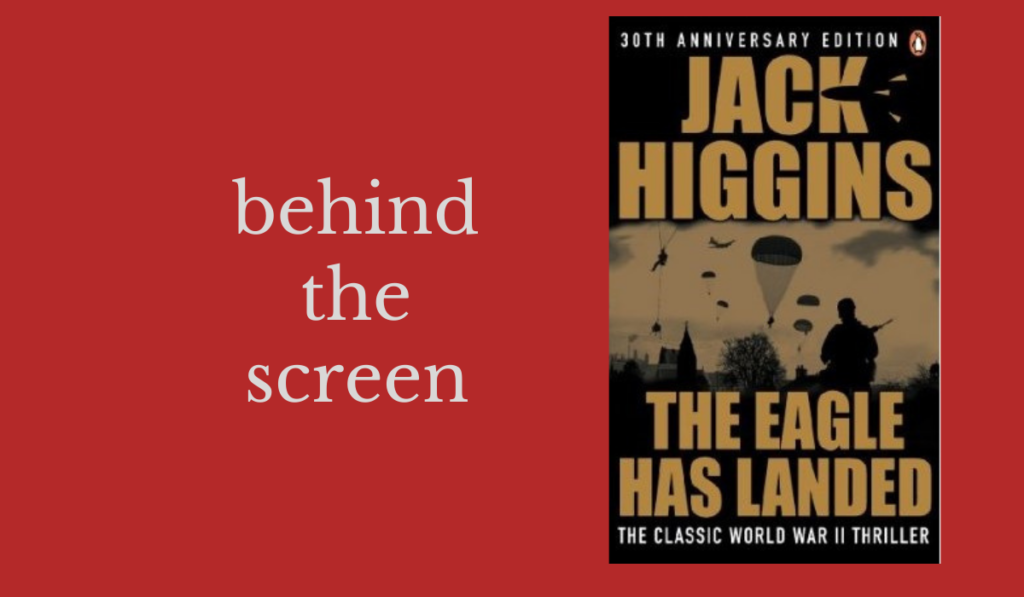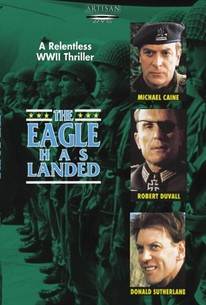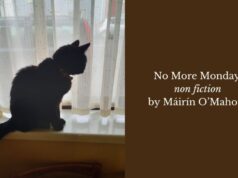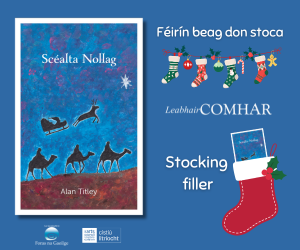
Tony Canavan sees some significant differences between the book and film of The Eagle Has Landed
by Tony Canavan, consulting Editor
I remember buying The Eagle Has Landed when it first came out in 1975. I was a teenager then and immensely enjoyed this adventure yarn of a team of World War II paratroopers sent on a dangerous mission behind enemy lines. Usually the heroes in such stories were British or American, so it added a certain frisson that the paratroopers in this case were Germans sent to kidnap or kill Winston Churchill in a desperate bid to change the course of the war. Jack Higgins’ novel was an instant bestseller and has remained so over the years, selling more than 50 million copies.
Jack Higgins was born as Henry Patterson in 1929 in Newcastle upon Tyne, England, to an English father and a Belfast mother. When his father abandoned them, his mother returned with Henry to live with her own family in Belfast. Henry learned to read at a young age through reading The Christian Herald to his bed-ridden grandfather. His mother remarried and so Henry was brought up in Leeds, England. In 1947 he began two years’ national service, giving him experience of military life. In 1959, while a teacher, he began writing novels, and soon became a full-time novelist, using different pen names until he settled on Jack Higgins. His 85 novels have sold more than 150 million copies and have been translated into 55 languages. Several have been made into films.
Although it would not be described as an historical novel, The Eagle Has Landed purports to be based on actual events.
However, there are some details which are historically accurate. There were Irish people in Berlin who cooperated with the Nazi regime (see David O’Donoghue’s Hitler’s Irish Voices, Beyond the Pale Publications) and a handful of British volunteers in the Waffen SS. A lead character, Joanna Grey, assists the Germans because of what the British did to her and her family during the Boer War. And the Nazi high command did think up some wild schemes to win the war. Higgins hit upon a success in the character of Liam Devlin. From Belfast, Devlin was one of those IRA men who fought for the Republic in the Spanish Civil War. It’s made clear that he has no sympathy for the Nazis and only wants to help the cause in Ireland. Devlin features in several later Higgins’s novels.

Higgins assumed that The Eagle Has Landed would never be made into a film as its heroes were Germans and an IRA man, but in 1976 it was filmed with John Sturges as director, starring Michael Caine, Donald Sutherland, and Robert Duvall. It was to be Sturges’s final film. It sticks to the core of the novel. Michael Caine plays Fallschirmjaeger Col. Steiner who leads a team of fellow German paratroopers on a mission to kidnap or kill Winston Churchill. They are aided by IRA man, Liam Devlin, who teaches at a Berlin University, and a sleeper agent, the South African Joanna Grey. Disguised as Free Polish Army paratroopers, Steiner’s men infiltrate a sleepy village in Norfolk. After a promising start, predictably, the plot goes wrong. Churchill is safe and Steiner is killed but Devlin escapes. Although garnering no awards the film was a commercial success.
While the film remains true to the main thrust of the novel, there are certain key differences. The sympathetic portrayal of Steiner and Devlin remains, but the producers seem to have had a problem with negative portrayals of the British.
Another character in the novel, an English volunteer in the Waffen SS, Harvey Preston, is excluded along with a pair of vicious Cockney gangsters. The motivation for Miss Grey to work for the Germans – the brutal behaviour of British troops in the Boer War – was cut from the final version of the film. The village vicar, Rev. Verecker, is a nasty character in the book but a nice guy in the film. The portrayal of Col. Steiner may be seen as part of a broader tradition of recognising some Wermacht officers as ‘good’ Germans unsympathetic to the Nazis, such as Field Marshal Rommel, or actively opposed to them such as von Stauffenberg and his fellow plotters, at a time when Soviet Russia was seen as a major threat and Germany an important member of NATO.
The Eagle Has Landed was Higgins’ most successful book, probably helped by the popularity of the film. It is, of course, a great adventure story which keeps the reader intrigued with ‘what ifs’ in history, but its real achievement is to take traditional villains – German soldiers and IRA men – and turn them into sympathetic heroes.
Tony Canavan is consulting Editor at Books Ireland












